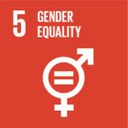The gender committee
Since 2014, the University of Namur, like all French-speaking universities in Belgium and the F.R.S.-FNRS, set up a Gender Committee. This committee has three main missions covering all aspects of gender issues specific to its institution: informing, raising awareness and networking. It contributes to the implementation and development of gender policy within its institution. He/she follows the policy line defined by the Vice-Rector in charge of gender.
The Vice-Rector in charge of the gender policy
François-Xavier Fiévez is the Vice-Rector in charge of the gender policy at UNamur.
The Gender Committee
Composition
- Jérémy Dodeigne - Jérémy Dodeigne is Professor of Political Science at the Department of Political Science (FSESG). He is also President of the Transitions research institute. As part of the institute's democratic transformations unit, his research focuses in particular on the political representation of women and changes in gender stereotypes in politics in European democracies (POLSTYLE project). Since 2021, he has been a member of the ARES Gender Commission for Higher Education (CoGES).
- François-Xavier Fiévez - A graduate of the Université Catholique de Louvain, he conducted research in the Women's Studies department on feminist readings of contemporary African-American authors. A lecturer in Foreign Language Didactics at UNamur, he works on issues relating to "Queering the English language classroom" (Paiz, 2020).
- Julie Henry - PhD in computer science and STEAM project leader. Her work focuses, among other things, on gender stereotypes and their influence on career guidance, particularly with regard to STEM careers. She represents UNamur in the Women in Digital group (SPF - Economy).
- Juliette Linard de Guertechin - Gender Contact Person (PCG) - A graduate of the Université catholique de Louvain in contemporary history, she continued her training with a specialised master's degree in gender studies. Passionate about understanding the power relations that structure our private lives and our society, she strives to bring them to light and to try to defuse them in her professional practice: first as an ECMS facilitator, then as a teaching assistant in the history of colonisation and feminism at the Université Saint-Louis Bruxelles and as a Gender Contact Person at UNamur.
- Romain Mertens - Assistant-doctoral student at UNamur's Faculty of Law. His research interests include non-discrimination law. He is a member of the Women and Science Committee.
- Stéphanie Wattier - Full-time professor at UNamur's Faculty of Law, she teaches the "Law, Gender and Society" course. She is deputy director of the Centre Vulnérabilités et Sociétés. Stéphanie Wattier is a member of the Management Committee of the Specialised Master's Degree in Gender Studies and of the Women and Science Committee.
Missions
- To produce an annual report on the state of gender equality within the institution.
- To raise the profile of gender issues within the institution, by advising the institution's authorities on the policies to be implemented to achieve greater equality between women and men, by informing and raising the awareness of the university community and its stakeholders and by monitoring the implementation of the actions set out in the respective action plans.
- To participate in institutional, regional, national and international gender networks.
- To propose an action plan to increase gender equality within the institution.
Gender contact person (PCG): Juliette Linard de Guertechin - Email: genre-diversite@unamur.be
A sustainable campus is one of the 5 main objectives of the Univers2025 strategic plan. More information (in French) here... The university must be exemplary in terms of sustainable development, in its three dimensions (economic, social and environmental), by the way it manages its infrastructures and its heritage for a sustainable campus in form , as well as, as a teaching and research institution, by its commitment to actively contribute to the environmental transition sustainable campus in substance.
The university must be exemplary in terms of sustainable development, in its three dimensions (economic, social and environmental), by the way it manages its infrastructures and its heritage for a sustainable campus in form , as well as, as a teaching and research institution, by its commitment to actively contribute to the environmental transition sustainable campus in substance.
More information on the University of Namur sustainable pages...














